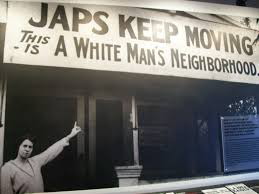People need to commemorate stuff. It’s a human need that appears somewhere down the list from food, water, and shelter. Today, in America, it feels like there’s an increasing need to commemorate tragic events.
The first national American tragedy heard almost immediately by thousands of people was on Dec. 7, 1941. Speaking on the radio, the Twitter of its day, President Franklin Roosevelt called it “a day that will live in infamy.”
When I first learned this famous phrase, I didn’t know what “infamy” meant. I got the gist because I knew what happened on that day: Japan attacked Pearl Harbor, a military base in Hawaii. In short, infamy means an extremely bad reputation. Someone who is infamous, for instance, has an extremely bad reputation. Kind of like Harvey Weinstein.
The events of Dec. 7, 1941 launched the United States into World War II. In that respect, it’s not only a day to remember, but also a day that initiated the United States’ war mobilization efforts. America has never been the same.
For many Americans, the attack on Pearl Harbor made Japanese people “infamous.” Soon, Americans realized that the Japanese were among them.
The mistrust of Japanese-American men, women, and children escalated into the forced internment of almost 120,000 people. This was conducted by the U.S. military under authority of Executive Order 9066. According to “Confinement and Ethnicity,” a field study conducted in 1999 by the National Park Service, the immediate post-war result for these Americans was the loss of homes and businesses estimated to total 4 to 5 billion dollars.
Many agree that the internment of Japanese Americans was wrong. In 1988, Republican President Ronald Reagan signed into law an official apology on behalf of the United States Government. In 1991, on the 50-year anniversary of the attack on Pearl Harbor, Republican President George H.W. Bush reiterated his apology.
The internment is an example of xenophobia. Pronounced as “zeno-phobia,” xenophobia is the fear or hatred of foreigners, people from different cultures, and strangers generally. It should not be confused with discomfort or uncertainty about that professor who you find difficult to understand or that group of people in the lunchroom who are a little more raucous than you’d like. Some discomfort is often a normal part of encountering differences. What matters is how you respond to that discomfort. Xenophobia is the result of not taking differences very well.
These days, xenophobia is a bit of a buzzword. We talk about it in connection with race relations in America and about immigrants and about Muslims. It’s often talked about in terms of “being under attack.”
For example: “American values are under attack!” “Western civilization is under attack!” “Our heritage is under attack!” Some people say their identity as a white person is under attack. Some people call those people white supremacists.
Horrible moments in history, tragedies through and through, oftentimes create space for some Americans to air their fears and hatred. Tragedies cause us to feel unsafe, insecure, and frightened. Lashing out is a basic response to those sensations.
It is not, however, a mature one.
The second-most infamous day in American history is undeniably Sept. 11, 2001. Often associated with the attack on Pearl Harbor because both were attacks on American soil, the 9/11 attacks led to a natural response to pursue justice. In the immediate days following the attacks, however, many Americans took justice into their own hands and lashed out at Muslims everywhere.
In the footsteps of his father’s apology for the internment of Japanese Americans during WWII, Republican President George W. Bush appeared at the Islamic Center in Washington, D.C., six days after 9/11, and condemned xenophobic acts against Muslims in America and around the world.
Most of us do not commemorate 12/7 as we would 9/11. In a world of constant tragedy, even the horror of the attacks on 9/11 have paled. Nonetheless, if you think about it, consider commemorating these days by remembering lessons learned in American history.
For an interpretation of the Japanese internment in the U.S., check out “Hold These Truths” by Jeanne Sakata. It’s playing on LyricStage in Boston from Dec. 1-31.

